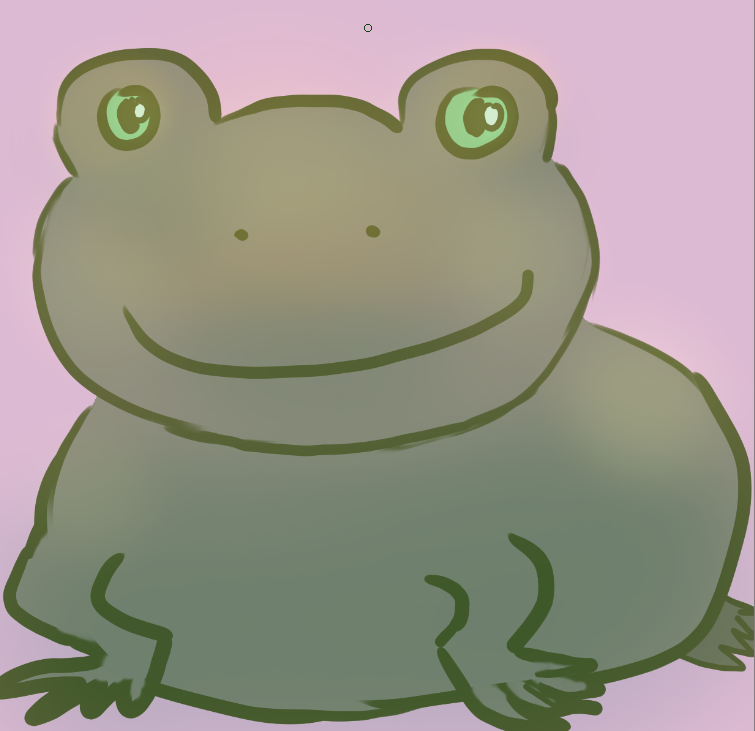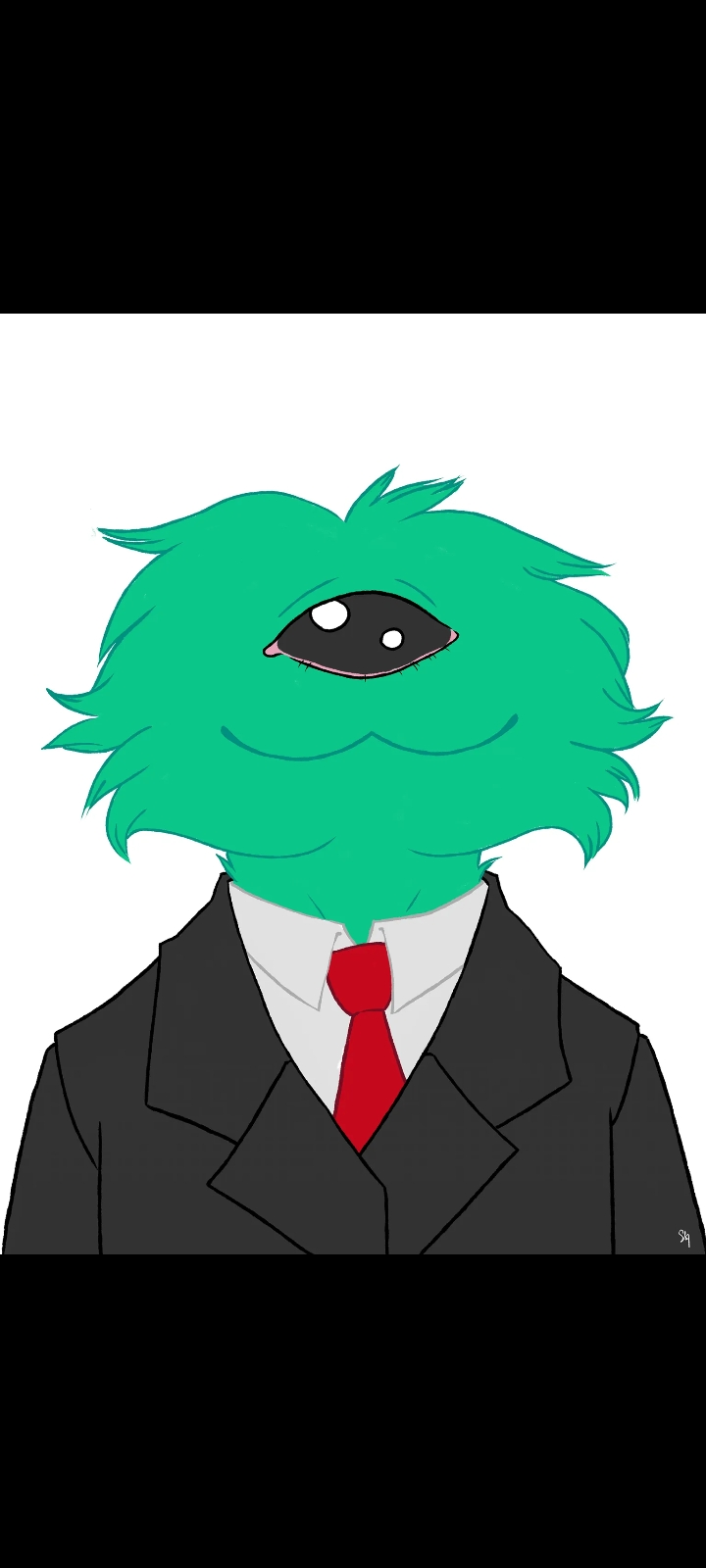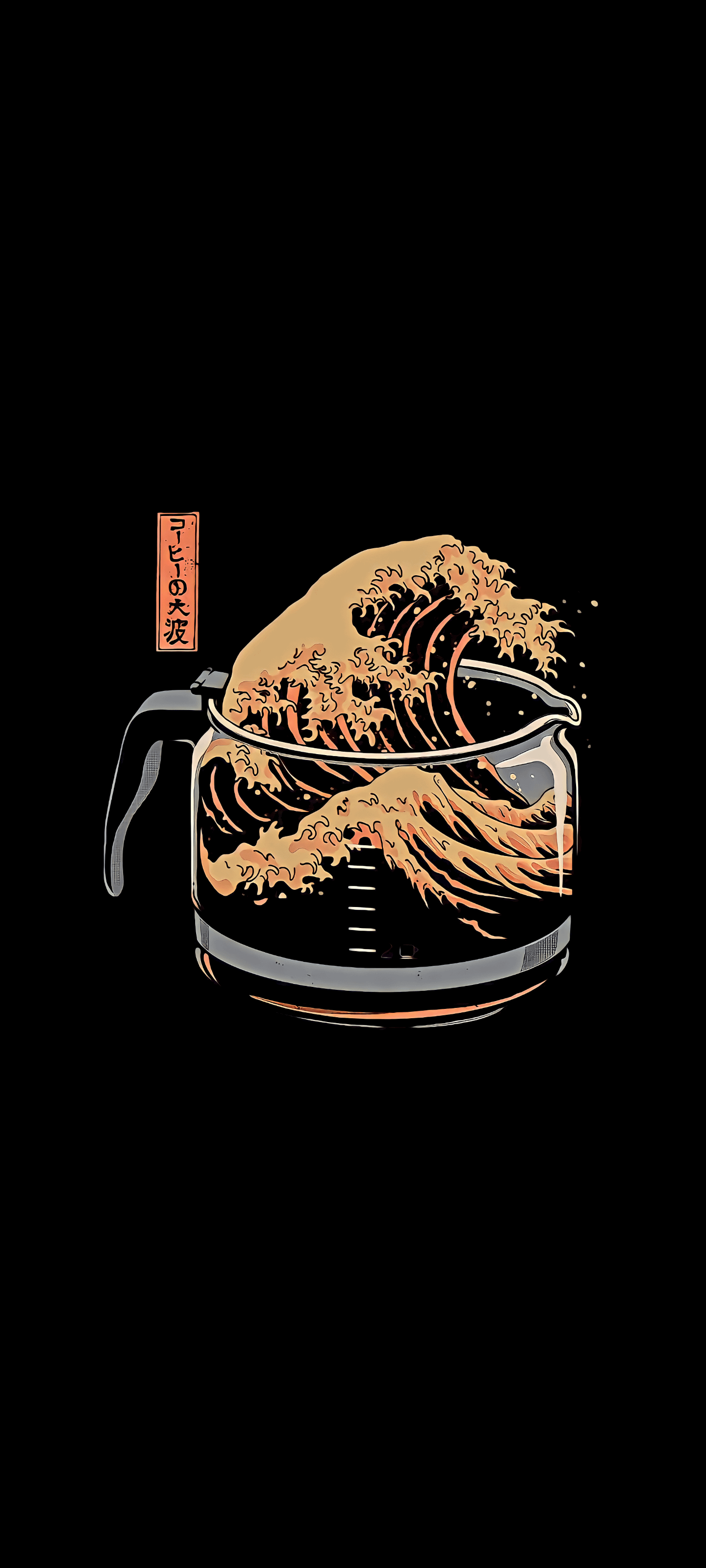I really tried to ignore it and let it go as just another passing trend. It’s not my language, not my culture and not my battleground, but it’s hard. It hurt me seeing it slowly spreading and getting bigger. What made me decide to vent was reading someone talk about their struggles and seeing a familiar sentence that might be familiar to all: “I was a weird child”.
Being weird is not usually a problem, the issue usually is people being incapable to accept what they consider weird. Different is not wrong, queer is not wrong, expressing yourself and living the only way you know when it’s not hurting anyone around you is definitely not wrong, even if it doesn’t conform with society.
All these horrible people hate being called weird because it’s what they having been calling us the whole time, but in more specific ways. I feel using it as a slur now just reinforces the negative connotations and validate their view.
Update: semantic satiation to the rescue. Weird became a meme and a trend everyone wanted to take part and use regardless of it making sense.
Too much thinking.
The right doesn’t care about accuracy, but they will pretend to to keep us busy. To counteract it, we can’t spend our time engaged in good faith arguments of carefully considered wording. We need to beat them on that flippant energy that shows we won’t take their bait and we know we’re right, so we don’t have to prove it.
Weird is perfect for that. They don’t want to be weird.
Now when they turn it around and try to call us weird? Then is the time to say ‘hey, that’s cool! I’m happy to be weird!’ and literally not worry about the contradiction at all.
They picked an arena where they can’t beat us. Let’s meet them there.
This, 100%. Did I have a hard time being called a weird kid growing up? Absolutely. I feel how this might make someone very uncomfortable. I embrace being called weird now after much struggle, and use it as a badge of honor. And currently, that exact flippant energy being used at people who can only parrot hateful things? That’s my bread and butter now, baby.
Weird is only a “weapon” if the person being called it treats it like one and for people like Trump(narcissist), being called weird is a trigger. I’m a weird person and most people who use the word are also weird. The point isn’t to make weird a negative word, but to trigger Trump and his goon and throw off his stride. That’s all it is.
Everytime discussions like this pop up, I can’t help but ponder upon how other people view language. Words are not universal. Perhaps it’s my neurodivergence or the fact that I’ve studied language, but I’ve always found it odd that others can prescribe such meaning to a single word, or for a word to have a strict definition absent context. I don’t know a single word in any language which only has a single definition- nearly every word has multiple definitions because it’s a reflection of how language is abstract. We create words to convey ideas, which are often ethereal in nature- they often lack clear boundaries.
But more than that, we internalize definitions much more often than we look them up. We use language based on how the people around us use language. We pick up their sayings, the slang they use, the way they structure grammar, the things they emphasize and minimize, and the words they borrow from other languages. Any slur that’s been used on you is something you will carry with you and will hold more weight that slurs which are used on others because the experience is tied to an emotional state. But it goes further than that, happy words which are tied to happy memories will have a different connotation than happy words which you’ve never used or never been exposed to. Language is inherently human and therefore inherently emotionally charged and socially defined.
Unfortunately you can never control how others use language. How you view a word cannot be the same as everyone else, because they haven’t lived your life. For some, weird may be empowering - a way to step into and own their eccentricity and difference; a celebration of diversity. Some may have never heard it used in the contexts you’ve mentioned. Others still may have experienced both othering and reclamation. Ultimately language will continue to be used whether you are comfortable with it or not. I’ve personally found that leaning into language which has been used against me negatively has helped to disempower it and the more I reclaim that language the less it bothers me and the more I view it as a source of pride.
Everything you’ve said here resonates with me. I’m also all for reclaiming words used to harm and repurposing for empowerment. One community that is really good at doing this is the drag/LGBTQ+ folx. Love this!
This article shared by @[email protected] earlier today has a section where they explore this idea a little:
There are, of course, different kinds of weird. There’s good weird and bad weird, or creepy-weird and interesting-weird. Plenty of regular folks and artists are a very good kind of weird. They reject conformity in ways that make us question cultural norms and force us to face the inherent randomness of existence. Weirdness is vitally important in this way.
Vance and Trump and their foot soldiers are most definitely creepy-weird.
I guess I’m not getting what bothers you about it? I wrote most of a paragraph about how I view the word, but then I realized that we are basically on the same page. “Weird” means different things depending on who is saying it, and depending on who they are saying it to. Just like “queer” has taken on a new context, even though it was used as a slur for quite some time. You know that if a leftist calls you “weird”, they mean it in an endearing way, while if they call a right winger “weird”, they mean it in a derogatory way. I am gathering that you agree that this is how it works. So what am I missing?
I sometimes say to my best friend, among other generally inappropriate things, that something she does is gay, and she does the same to me. It is a private reclamation of the use of the word gay as a slur, but outside any context, to an outside observer, it’s just casual homophobia.
Let me go back to that child. I don’t think they will hear horrible people being called weird and see it as being bad weird. It’s just plain weird. If it’s not being different that’s the issue, but the specific bad behavior, why the focus is on weird? We know words help shape our perception, we fight for those changes. What bothers me is hearing the same harmful words I heard so many times towards me and around me being used by those who seemed to understand how they hurt. I guess it’s similar to the discussion of being okay to attack someone’s looks if they are on the other side.
I sometimes say to my best friend, among other generally inappropriate things, that something she does is gay, and she does the same to me.
My partner and I do the same. It’s to the point where i don’t even think of the original slur use anymore. This is pretty universal among all of the queer people I know IRL.
If it’s not being different that’s the issue, but the specific bad behavior, why the focus is on weird?
Because the specific bad behavior is childish and immature, but the weird people in question do not understand that their behavior is childish and immature. Weaponizing “weird”, a word that is usually only weaponized by children, brings their immaturity into sharp focus, which pisses them off because they are trying so very hard to be viewed as tough and unstoppable. Most rational adults do not mind being called weird, which is why it works as a label. It makes conservatives mad, and if they try to go, “I’m not weird, you’re weird!”, most rational people won’t really care, because weird isn’t a bad thing to be. We’ve tried other words, but they generally don’t work because they are either too academic to stick, or the Right simply “both-sides” it into obscurity.
You really should read that article I linked, it digs into this better than I can.
I read it. I was familiar with that form of activism, but I don’t agree this is it. I saw all the examples presented as forms of reframing the situations to deflate their original meaning. The author says using weird is non violent, but it’s an attack using a word. The advice is use it because it hurts, not because it makes their ideals less appealing.
As an ND disabled person who tried my whole life to reclaim the word weird it bothers me as well.but same here, not an american.
There’s weird as in unusual, which I appreciate. Then there’s weird as in creepy.
If you see two people in a park and one is an adult skipping around catching butterflies and the other one is trying to follow women around without them noticing, that is two totally different genres of weirdness going on. I’ll happily skip around with the person following their passion without fear of judgement, but the other weirdo needs to be kicked out of the park.
I think people should stick to using more specific/descriptive negative language like creepy and vile against them instead of using more generic language like weird.
That sounds like the difference between weird and creepy. Why not just say creepy? I suppose ‘weird’ may be a more effective insult, but I don’t feel like it fits as well.
Republicans are creepy. I’m weird. There’s very little overlap. I actually don’t even think Republicans are that weird, they’re just boring yet emboldened creeps.
It’s not something I really thought about before reading this post, but I actually do think that ‘weird’ as an insult is kinda harmful, especially with how it overlaps with queerness and autism.
It bothers me that the presidential race seems like it may be decided solely based on the quality of each side’s memes.
“Electoral politics try not to be just a popularity contest challenge”
Failed for like the 50th time
Not a slur. Not even close.
What it is is an omnipresent, versatile, variable, nuanced word, that someone apparently started using “politically” like fifteen fucking minutes ago - I don’t see that as a compelling reason to hustle to change my lexicon, and wouldn’t advise anyone else to do it either. It is literally playing into their dogshit tactics: “validating their view” is, respectfully, not a good argument if we’re talking about the American right which I’m going out on a limb and assuming we are. This is because their “view” (like many of their imitators) is “I will bitch about everything I can possibly pretend to take offense at, or else make something up”. Therefore, allowing them to dictate your vocabulary (extremely and intentionally hypocritically, between the incessant bitching about “political correctness”) seems like a losing or at least pointlessly annoying proposition. You are playing chess with a pigeon, it will shit on the board and strut around like it’s won.
If they didn’t want to be called “weird”:
-
Maybe they shouldn’t have been weird
-
Maybe they shouldn’t be whinging about it from the #1 spot on the podium of irrelevant namecalling and shit-flinging kindergarten/zoo tactics.
-
Tough shit lol
-
GOTO 3
I love everything you said, but badmouthing pigeons by comparing them to the far right loonies makes me sad lol. Pigeons are lovely, smart(ish), and sweet creatures!
-
The word won’t lose it’s meaning if Democrats refuse to use it so why not flip the script and use it to call out their own bigotry? The more both sides use it the more it loses it’s power but I’d much rather see the word be applied to hateful opinions that can be changed than someone’s core identity that can not be changed.
Idk, words are tools as well. Right now it’s being used to wake people up to the fact that republican policies are very invasive, harmful, and unpopular. I get being uncomfortable, but this is just language being language. And it’s overall going to be beneficial.
Saw a comment elsewhere that someone who shrugs off being called weird is better to know than the one who gets upset by it.
The far right are seething about being called weird because they see themselves as they cool kids who laugh at others for being weird so it’s really got under their skin.
The right has made major ground the last few years because any explanation leftists give they like to provide context which bogs them down.
Calling JD Vance a weirdo couch fucker for example, is succinct, visceral and keeps them on the backfoot as the far right cannot process their emotions at the speed that the left can.
I think this is similar to another thread discussing words used to attack people based on them being different than the “norm” in some way, and I think it really merits a discussion around language as a weapon in general. Any word that is used as a weapon will almost by definition be a word that “otherizes”. Even when you are attacking someone for being part of the “normal” populace (which does exist as an insult, e.g. “normies”, “npc”, etc), you are inherently implying that you are not that, and thus the person is different than you. And to be clear, it is important to be able to otherize bad groups and ideas.
I’ve heard the suggestion that no insults should be necessary to attack e.g. Rightwing fascists, and that simply labeling them what they are should be enough of a turn-off to the average person, but imo this ignores the reality of language. ‘Fascist’ is in reality just a political label, akin to ‘liberal’, ‘progressive’, ‘conservative’, etc. Using a label as an attack will fall flat if the person you’re attacking does not object to the label, or if the persons viewing the attack as a third party do not attach the same negative emotions to the word that you do (which sadly but, if you know US history, very predictably, is the case here). Also, you run the very real danger (which has already been happening in US politics as well) of making observers dismiss the criticism entirely as hyperbole, e.g. “Dems just call anyone they disagree with Nazis”, based on the label not fitting perfectly.
So if stating a technical description/ label alone is not enough to derail dangerous Right-wingers, we’re left needing weapons, and weapons have to cause damage to be useful, and damage for words comes from their emotional impact.
I think there are classes of words whose use is fundamentally incompatible with Left-oriented philosophies, such as any insult based on an intrinsic characteristic (i.e. slurs), but I don’t think that “weird” qualifies as this, since it is determined entirely by being different than whatever the ‘norm’ in an area is, and what is weird can change based on time, location, person, family, etc.
There is a difference between saying that weird is bad, period (i.e. insisting on conformity with the norm), and saying that a particular form of weirdness is bad.
I think we need to be comfortable otherizing dangerous groups and philosophies, and not treating them as though they deserve respectful engagement as just another acceptable form of philosophy to engage with. If ‘weird’ were less malleable, I could see the argument against using it to otherize, but even in my short lifespan what is considered ‘weird’ has drastically changed over time and based on location. I don’t think that calling Trump and Vance ‘weird’ is making anyone think, “yeah, non-conformity is actually bad”.
Sorry for rambling.
It’s not rambling, we need this extreme detail of clarification specifically because of this increased push of arbitrary words into slur territory (not IMO, but that’s where the outrage is coming from.)
In addition to that, we have such a high overlap of meanings that when this push does occur, it’s done so to remove other meanings from the word.
Weird used to be a wide combination of things. Now it’s being attempted to be turned into an insult in a way that it wasn’t quite an insult before.
Basically, the inflection of language has slowly been dying as critical thinking and literacy skills have dropped. You used to be able to call someone weird and based on your inflection, people understood the context.
Inflection from context isn’t reliable anymore, because if someone wants it to mean something else, that’s what it will mean to them. (And less pointed, sometimes people don’t realize words can mean different things. But this doesn’t happen as often)
(deleted my comment because I think I need more time to chew on my thoughts about this topic)
I respect your willingness to take a moment and think about your opinions.
I have not followed the discussion so I may be just wrong. What I wonder is regarding the maga crowd is that they may tend to be more conformist. Also things like loyalty may tend to be more important than honesty with this group. I wonder if seeming weird in that group and being yourself is a lot less acceptable.
Grow up








